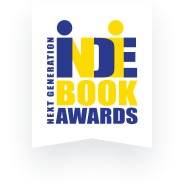
New Literary Agency Listing: CAA (London)
firstwriter.com – Friday February 9, 2024

Represents award-winning and bestselling storytellers across a wide range of disciplines. Our authors include media personalities, musicians, actors, political figures, trendsetters, and more. We take an active role in every step of the book process, from developing the concept to amplifying author platforms and launching industry-leading book tours.

Call for entries: 2024 next gen indie book awards
authorlink.com – Thursday February 8, 2024

If you would like to receive greater recognition, monetary prizes, awards and exposure for your books, here is an opportunity not to miss. Enter the 2024 Next Generation Indie Book Awards.
Calling all indie book authors and publishers – including small presses, mid-size independent publishers, university presses, e-book publishers, and self-published authors who have a book written in English released in 2022, 2023 or 2024 or with a 2022, 2023 or 2024 copyright date to enter the most rewarding book awards program.
Offering 80+ Categories – More than 80 Awards – with over 80 monetary prizes totaling over $10,000 in cash, including $1,500 cash prizes plus trophies for best fiction book and best non-fiction book, $750 cash prizes plus trophies for second best fiction book and non-fiction book and $500 cash prizes plus trophies for third best fiction book and non-fiction book!

Fern Press launches £3k Fern Academy Prize for essays
thebookseller.com – Thursday February 8, 2024

Fern Press and How to Academy have partnered on a new essay award worth £3,000, in association with Tortoise Media, for unpublished authors.
Fern Press was launched by Vintage last year, while the annual non-fiction essay prize is "for those working at the frontier of creativity and thought", organisers said.
The prize is designed to find and nurture emerging non-fiction talent and will be awarded to an essay of literary merit with an international and multicultural interest. The prize encourages essays that shine a light on the universal human experience – on a micro or macro scale – and “which speak clearly to the times we live in", organisers said. The prize is open to unagented and unpublished writers from around the world, writing in the English language.

Sarah Ballard joins C&W after 16 years at United Agents
thebookseller.com – Wednesday February 7, 2024

Sarah Ballard has joined C&W as an agent, representing a wide range of both fiction and non-fiction writers.
Ballard was an agent at United Agents for 16 years before joining C&W, part of The Curtis Brown Group, on 5th February. “I’m thrilled and honoured to have been asked by Clare Conville and by my good friend Sophie Lambert to join the team at C&W," she said. "I’m grateful to my friends and colleagues at United Agents whom I have been privileged to work with, and am excited for a new challenge.”

New Literary Agent Listing: Amanda Bernardi
firstwriter.com – Tuesday February 6, 2024

Actively building her client list and works exclusively with non-fiction. She is interested in platform- or expertise-driven cookbooks, home & design, art, investigative journalism, social justice, pop science, wellness, social science, sports, health, pop history, parenting, nature, environmentalism, pop culture and anything that advances our community dialogue towards a better tomorrow. She is looking for projects that are thoughtful, actionable, and engaging for a general audience.

Why a Writing Ritual Is the Ultimate Creativity Boost—How to Design One for Yourself
camillestyles.com – Monday February 5, 2024

I've long believed: a happy, healthy life is built on rituals. From your morning routine to your evening wind-down, our days flow with greater ease when we have supportive habits in place. Decision fatigue is an inevitable truth of our lives (the internet presents us with no shortage of rabbit holes). But rituals allow us to weave more intention into our choices. By committing to what helps us feel our best, we benefit from a level of self-trust that becomes a fixture of our days. And as a writer, that truth shows itself most in my daily writing rituals.
I’m both blessed and cursed with a creative career. Writing, of course, is a skill you develop through education, experience, and exposure to beautiful words and effective style. But it also requires inspiration—a central point from which we can build a story, argument, or even a single thought. And honestly? Some days, I don’t have it. Writing rituals, however, help me conquer the blank page with confidence.

RCW's Claire Wilson steps up to AAA president
thebookseller.com – Thursday February 1, 2024

The Association of Authors’ Agents (AAA) vice-president Claire Wilson, of RCW Literary Agency, has stepped up to president.
Wilson was formally appointed at an association meeting on Tuesday (30th January) and praised outgoing president Catherine Clarke of Felicity Bryan Associates for her “thoughtful, dedicated and highly effective leadership”.
Hellie Ogden, of WME London, joins as vice-president, and Karolina Sutton, of CAA, joins as an ordinary member, after Madeleine Milburn, of the Madeleine Milburn Literary, Film and TV Agency, stepped down.

New Literary Agent Listing: Elinor Davies
firstwriter.com – Thursday February 1, 2024

I’m looking for commercial and upmarket fiction stories that will be either the next compulsive read or a cosy winter comfort book. The most important thing for me is a great hook. An addictive premise that can be summed up in just a few words but will stay in the reader’s mind so that they’re unable to stop talking about it. I love a feminist crime thriller and I’m especially drawn to merciless narrators who we can’t help but love. I’m also open to lighter crime reads and can’t get enough of crime capers with comedy at their heart. In historical fiction, I’m looking for stories set from the Victorian era onwards, although I’m currently avoiding wartime fiction. I adore a dose of magic in just about everything I read whether it comes in the form of spirituality, family, or love. I’m talking about magical realism rather than outright fantasy (although I have a soft spot for witchy books). Nothing pleases me more than a novel that can transport me around the world and I’m really keen to find underrepresented voices that can teach me about their country and culture. I also read in both Welsh and Spanish so if you’re a writer of one of these languages wanting to adapt your writing for the English market within any of the genres mentioned above, I would be thrilled to read your work!

New Publisher Listing: Thinkwell Books, UK
firstwriter.com – Wednesday January 31, 2024

We welcome fiction, sport and political/social works that make us sit up and thirst for the next line, the next profound, humorous, emotional, devastating or stupefying glimpse of originality.

You're Asking Too Much From Your Story And Not Enough From Yourself
nofilmschool.com – Tuesday January 30, 2024

The only way to get vulnerability and truth into your story is to share parts of yourself.
Last year, I was staring at a blinking cursor on my screen and at a crossroads. I had written a screenplay with a great plot, but the feedback I kept getting was that it didn't have a soul.
I distinctly remember a friend asking me, "What makes this a Jason Hellerman script?"
At the time, I answered, "Because my name is on it."
It was a clever retort, but I was wrong.
Sure, it was on the title page, but the issue I was having was that I was not putting enough of myself into the writing. I thought the plot and the characters would compensate for it. But because I was not imbuing the page with a piece of me, it still felt hollow.
That can only get you so far.
And it wasn't going to get my movie made.
Get the free newsletter | Submit a news item or article | Get Writers' News for your website





